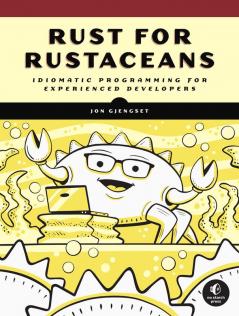English
Paperback
₹4250
(All inclusive*)
Delivery Options
Please enter pincode to check delivery time.
*COD & Shipping Charges may apply on certain items.
Review final details at checkout.
Looking to place a bulk order? SUBMIT DETAILS
About The Book
Description
Author
<b>Master professional-level coding in Rust.</b> <p/>For developers who've mastered the basics this book is the next step on your way to professional-level programming in Rust. It covers everything you need to build and maintain larger code bases write powerful and flexible applications and libraries and confidently expand the scope and complexity of your projects. <p/>Author Jon Gjengset takes you deep into the Rust programming language dissecting core topics like ownership traits concurrency and unsafe code. You'll explore key concepts like type layout and trait coherence delve into the inner workings of concurrent programming and asynchrony with async/await and take a tour of the world of no_std programming. Gjengset also provides expert guidance on API design testing strategies and error handling and will help develop your understanding of foreign function interfaces object safety procedural macros and much more. <p/>You'll Learn: <br><li>How to design reliable idiomatic and ergonomic Rust programs based on best principles</li><li>Effective use of declarative and procedural macros and the difference between them</li><li>How asynchrony works in Rust - all the way from the Pin and Waker types used in manual implementations of Futures to how async/await saves you from thinking about most of those words</li><li>What it means for code to be unsafe and best practices for writing and interacting with unsafe functions and traits</li><li>How to organize and configure more complex Rust projects so that they integrate nicely with the rest of the ecosystem</li><li>How to write Rust code that can interoperate with non-Rust libraries and systems or run in constrained and embedded environments</li> <br>Brimming with practical pragmatic insights that you can immediately apply <i>Rust for Rustaceans</i> helps you do more with Rust while also teaching you its underlying mechanisms.
Delivery Options
Please enter pincode to check delivery time.
*COD & Shipping Charges may apply on certain items.
Review final details at checkout.
Details
ISBN 13
9781718501850
Publication Date
-21-12-2021
Pages
-280
Weight
-431 grams
Dimensions
-179x236x16.98 mm








